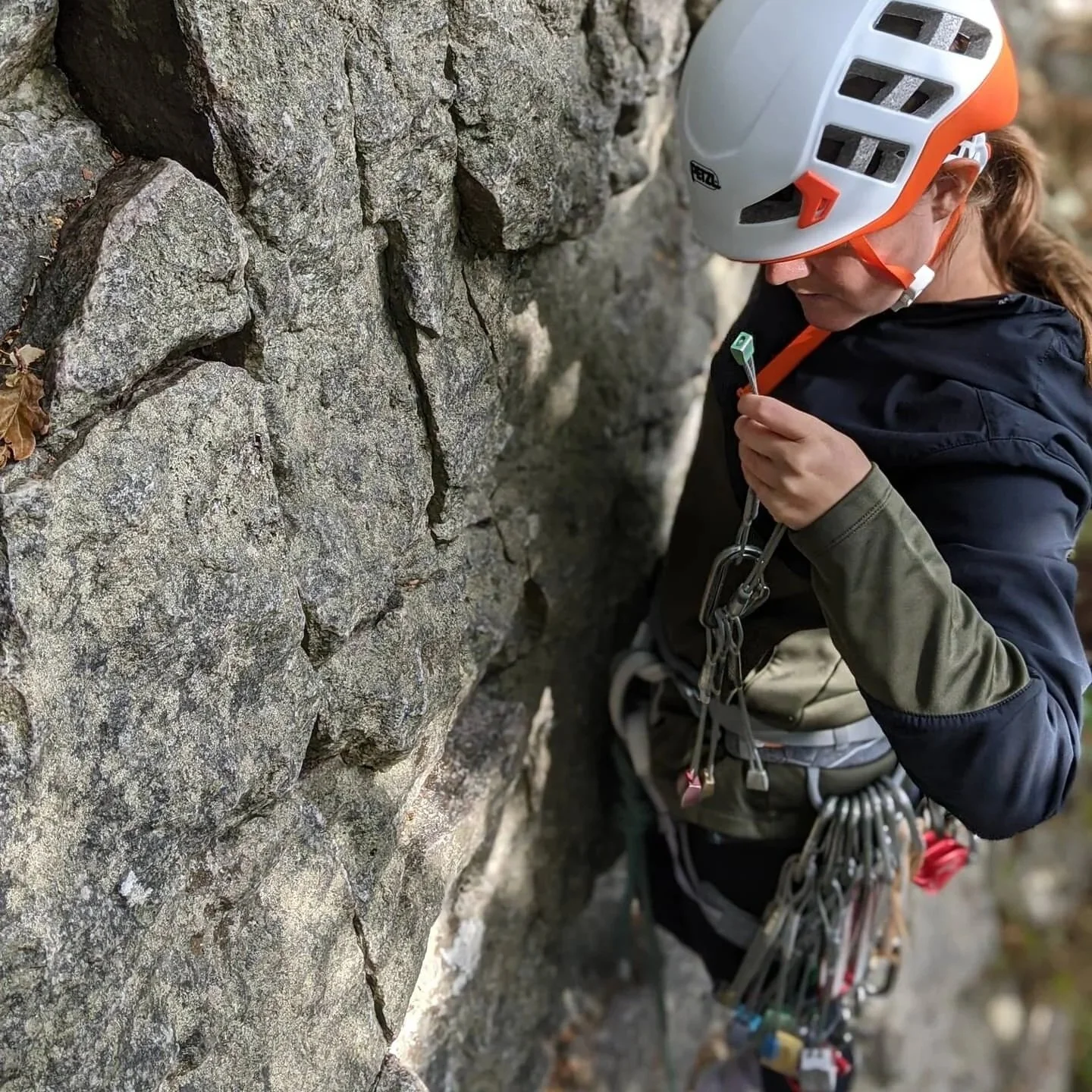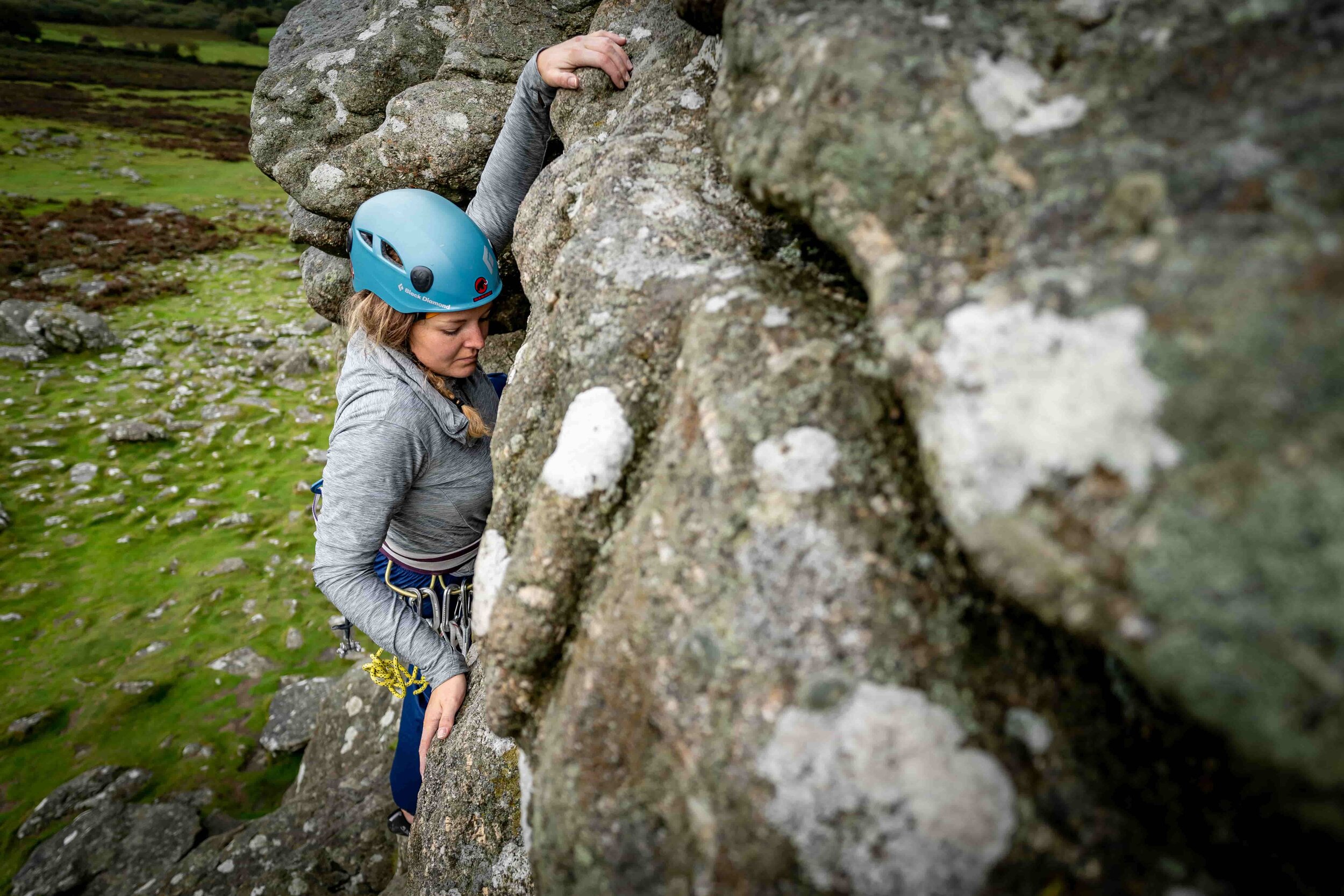A Guide to Trad Climbing on Dartmoor: Embrace the Wild Stone
Dartmoor. The name alone conjures images of wild ponies, ancient tors, and a sense of raw, untamed beauty. But for climbers, it whispers something else: trad climbing. If you're looking to embrace the true spirit of self-reliance, technical skill, and a deep connection with the rock, trad climbing on Dartmoor offers an unforgettable experience.
Unlike sport climbing, where fixed bolts provide protection, trad (traditional) climbing requires you to place all your own protective gear as you ascend. It’s a journey that demands a different kind of focus, a keen eye for gear placements, and a profound respect for the environment. And on Dartmoor, you’ll find some of the UK’s most unique granite challenges.
Why Dartmoor for Trad Climbing?
Dartmoor's tors are geological wonders
Dartmoor's tors are geological wonders, sculpted by millennia of erosion. The granite here is often surprisingly grippy, offering excellent friction, but it can also be weathered and intimidating. What makes Dartmoor so special for trad climbing?
Abundant, Accessible Crags: From Haytor to Hound Tor, The Dewerstone to Bonehill Rocks, there are numerous crags offering a wide range of grades and styles. Many are relatively easy to access, making a spontaneous climbing day a real possibility.
Wild & Scenic Setting: Forget crowded urban climbing walls. Here, you're surrounded by breathtaking moorland, often with only the sounds of the wind and buzzards for company. It's an immersive, natural experience.
A Unique Granite Experience: Dartmoor granite has its own character. Expect plenty of cracks, slabs, and sometimes surprisingly bold sections. It’s excellent training for developing a versatile trad climbing skillset.
History & Heritage: These tors have been climbed for decades, with many classic routes established by pioneering figures. You're following in the footsteps of climbing history.
Essential Gear for Dartmoor Trad
Before you even think about tying in, ensure you have the right kit.
This isn't an exhaustive list but covers the core essentials:
Rope: A single 50m or 60m rope is standard.
Harness & Belay Device: Standard climbing essentials.
Helmet: Crucial for head protection, especially in areas with loose rock or potential for leader falls.
Trad Rack:
Wires/Nuts: A full set of various sizes (e.g., DMM Wallnuts, Wild Country Rocks). Double up on common sizes (5-9).
Cams: A selection of cams, especially in smaller to mid-range sizes, will be invaluable for parallel-sided cracks.
Quickdraws: At least 10-12, including some extendable/alpine draws to reduce rope drag.
Slings: Various lengths (60cm, 120cm) with screwgates for anchors and extending placements.
Nut Key: Absolutely essential for retrieving stuck gear.
Good Climbing Shoes: Essential for friction on granite.
Rockfax / UKC Guidebook: Indispensable for route finding, grades, and descent information. The "West Country Climbs" Rockfax is excellent.
First Aid Kit: Always carry one, especially when in remote areas.
Top Dartmoor Trad Climbing Spots (A Glimpse)
Dartmoor boasts a fantastic array of crags.
Here are a few to whet your appetite:
Haytor Rocks: Arguably the most iconic Dartmoor crag. Easy access, stunning views, and a great selection of routes across the grade spectrum, from beginner-friendly Diff to challenging E-grades. Perfect for a classic moorland climbing experience.
Hound Tor: A more spread-out collection of tors offering excellent climbing. Known for its quality granite and slightly more committing feel than Haytor.
The Dewerstone: A truly magnificent crag nestled in woodland by the River Plym. It offers longer, multi-pitch routes in a beautiful, secluded setting. A definite step up in commitment and an unmissable experience.
Sheeps Tor: Great for shorter, punchy routes, but also home to some fantastic trad lines. A popular spot with a friendly atmosphere.
Important Considerations for Dartmoor Trad
Weather: Dartmoor weather is notoriously fickle. Be prepared for all conditions – sun, wind, rain, and mist can all appear in a single day. Check forecasts meticulously.
Approach & Descents: Many crags require a walk across open moorland. Be comfortable with navigation, especially in poor visibility. Descents often involve down-climbing or abseiling, so understand the specifics for each route.
Respect the Environment: Dartmoor is a protected landscape. Stick to paths, take all litter home, and be mindful of wildlife (especially nesting birds).
Experience & Training: Trad climbing is not for beginners without supervision. If you're new to trad, consider booking a course with experienced instructors like us at Climb Devon! We can teach you the fundamentals of gear placement, anchor building, rope work, and lead climbing safety.
Guidebooks & Beta: Always use an up-to-date guidebook. Online resources like UKC (UK Climbing) are also excellent for recent conditions and route discussions.
Ready to Tie In?
Trad climbing on Dartmoor is more than just a physical challenge.
It's an adventure for the mind and spirit. It offers a unique connection to nature and a profound sense of achievement.
If you're keen to explore the fantastic trad climbing opportunities Dartmoor has to offer but want to learn the ropes (pun intended!) from experts, Climb Devon provides comprehensive trad climbing courses tailored to all levels. From introductory sessions covering gear and safety to advanced lead climbing and multi-pitch techniques, we’ll help you develop the skills and confidence to safely enjoy Dartmoor’s incredible granite.
Contact us today to book your Dartmoor trad climbing adventure!
Ever looked at the famous granite tors on Dartmoor and wished you could climb them? This is your chance. Our 'Intro to Rock' day is the perfect, safe, and supportive way to try real rock climbing.
We'll get you climbing, belaying (holding the ropes), and even trying an exciting abseil, all under the expert guidance of a qualified instructor. No experience is necessary, and all equipment is provided. Just bring your sense of adventure and get ready for an unforgettable day!
Choose Your Adventure
The Full-Day Intro (6 Hours) Want to make a day of it? The full-day course lets you dive deeper. We'll explore more of the crag, try a wider variety of climbs, and spend more time perfecting your belay skills and climbing movement. This is the best way to build a solid foundation.
Price: £99 per person (Open Group)
3. Private Booking (Your Own Adventure) Want the instructor all to yourself? A private booking is perfect for families, couples, or a group of friends who want a day tailored just for them.
Half-Day (3hrs): £160 (for up to 4 people)
Full-Day (6hrs): £280 (for up to 6 people)







